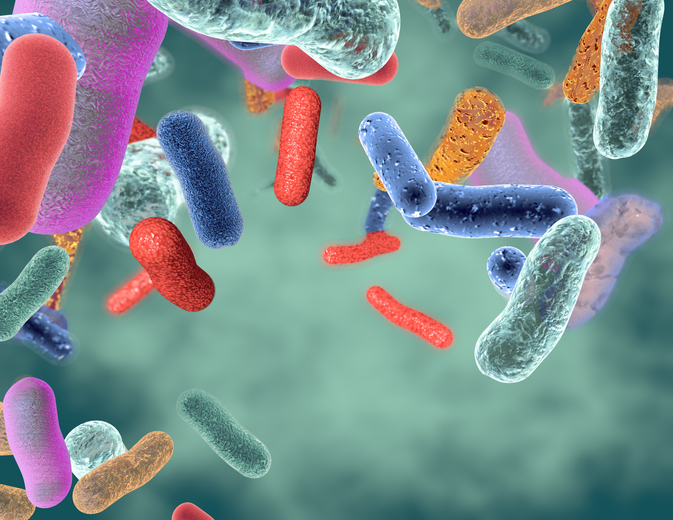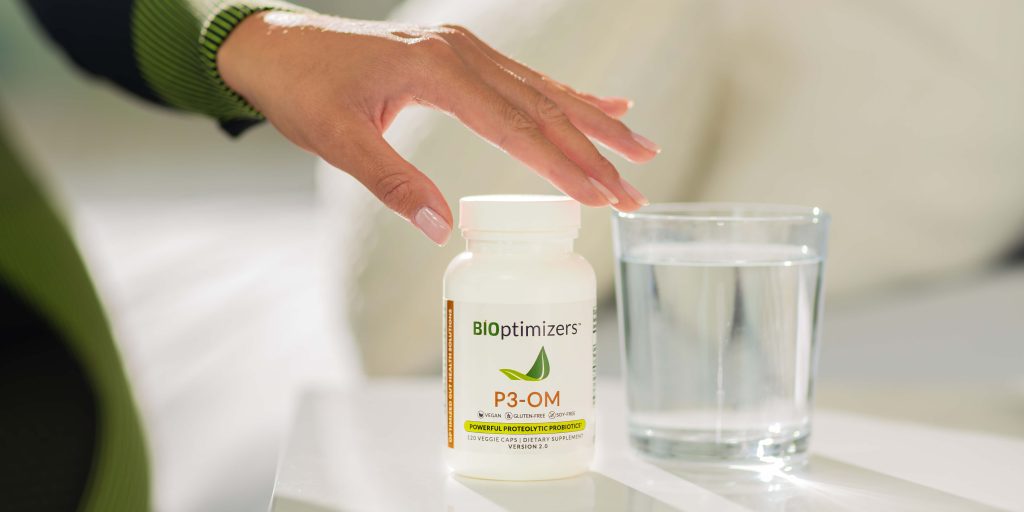How to Improve Digestion in Old Age
Do you notice your digestive capacity going down as you get older? Perhaps your appetite is down?

Introduction
Do you feel more bloated and take longer to digest food, especially rich foods? And you don’t need to be a senior to experience this—age-related decline in digestion starts as early as your late 20s.
We know that gut health is closely tied to our overall health, and when things go wrong it can throw off your health in various ways. Recent studies show many age-related changes happen in the digestive tract, affecting things like the growth of important cells, the strength of your gut lining, the microbiome, and even the immune system.
As more people around the world are getting older (often called the “Silver Tsunami”), it becomes even more important to figure out how to keep your digestive system and the rest of your body healthy.
In this article, we look at what happens to the digestive system as we get older, and the consequences it might have on all other aspects of health. Understanding these changes and their impact on the whole body will help you better understand these processes, and what you can do now to improve the quality of your digestion as you age.

What Are Age-Related Digestive Changes?
Age-related digestive changes are alterations in your digestive tract’s structure and function that occur as a natural consequence of getting older. These changes can impact you in many different ways. The most obvious concern is the impact of how well your body can break down and absorb nutrients from food, but aging can also impact immune function, metabolism, and your risk for digestive issues.
While the causes of this can be diverse – genetics, lifestyle choices, diet, medical conditions, and even stress – the processes taking place in the actual digestive tract can be similar. Here, we dive into what some of these processes are:
1. Declining Stomach Acid, Digestive Enzymes, and Other Digestive Secretions
Food digestion happens thanks to the various enzymes and secretions produced by your body, that help break down food so that you can absorb nutrients properly. But as you age, changes in these secretions can impact how well you digest and absorb nutrients. Here are some examples:
- Saliva: as you get older, the production and composition of saliva can make it harder to chew and swallow food. You may be surprised to know that saliva contains enzymes that help break down carbohydrates, and this process begins as soon as food enters your mouth. Age-related changes can impact your taste perception and create a less efficient start to the digestive process.
- Stomach acid: the levels of stomach acid, and another stomach enzyme called pepsin, can also go down with age. This can reduce how well your body can break down proteins and can lead to stomach discomfort and indigestion. Declining protein digestion and assimilation can also contribute to age-related muscle loss and overall physical decline.
- Pancreas secretions: with aging there are also fewer enzymes being secreted by your pancreas, which help digest all macronutrients – carbs, fats, and proteins – in the small intestine. This can cause less complete digestion and absorption of essential nutrients like vitamins and minerals and might lead to nutrient deficiencies.
- Bile: Bile is needed to absorb dietary fats. In aging, changes in the composition of bile and how it is recycled in the body can hinder efficient absorption of fats and might lead to malabsorption of fat-soluble vitamins and cause diarrhea or fatty stools.

2. Weaker Gut Barriers
One of the main jobs of the intestinal lining is to act as a protective barrier. It helps to keep the stuff inside your gut from leaking into your body, while still absorbing nutrients and other good things.
As you age, your body can become more sensitive to certain foods, and this can lead to problems. One problem is a condition often nicknamed “leaky gut”, where the lining becomes less tight and allows bacteria, inflammatory molecules, and undigested food particles to leak into your bloodstream.
Compared to younger populations, older people often have higher levels of gut leakage and inflammation. This creates a vicious cycle, where gut issues cause inflammation, and inflammation makes gut problems worse.
LPS, a molecule produced by some bacteria in your gut, can be harmful when it gets into the bloodstream. When it does, your immune system gets alarmed. This can contribute to higher age-related inflammation, food sensitivities, and even chronic diseases.
3. Reduced Appetite
Aging can also change your appetite, and this can impact digestive function. This happens for several reasons, like changing nutrient needs, medical conditions, and hormonal changes that can impact feelings of hunger and fullness. These changes in appetite might also be linked to changes in perception – taste, smell, and vision – which help promote enjoyment of food and further stimulate appetite.
But, when you eat less, your body might not get all the nutrients it needs, and this can impact your overall health and energy levels.
For example, your body might start breaking down muscle tissue for energy, which can affect muscle mass. This can change the way your metabolism functions overall, reducing how much energy your body naturally expends at rest. It can also impact bone health because you are consuming less of the nutrients needed to build strong bones, which is critical to maintain as you get older.
4. Age-Related Shifts in the Gut Flora
Helpful bacteria in your gut play a big role in keeping your gut barrier strong and healthy. As you get older, there can be changes in the balance of good and bad bacteria in your gut. Many things can contribute, including your diet, stress, and medical conditions that become more common with aging.
Age-related shifts in gut flora can lead to less diversity in the organisms that colonize your digestive tract, and more potentially harmful bacteria taking up residence.
Your gut flora is important for helping to break down the food you eat. When the balance changes, it can impact how effectively your gut digests food, and lead to problems like bloating, gas, and discomfort after meals. Gut flora also produces molecules that help promote digestion, like short-chain fatty acids and bile acids, which can decline with these gut flora shifts.
Finally, some vitamins, and immune molecules are synthesized by gut microbes. When age-related processes alter the concentrations of these good bacteria, nutrient deficiencies, and immune changes can result. Some of these changes can make things like inflammation and leaky gut worse.

5. Changes in Gut Movement
As you age, the way your gut moves and pushes food through it (called gut motility) can decline, affecting how well you digest food. Think of it like a conveyor belt that is slowing down, allowing food to spend more time along your digestive tract. When food stays in this system longer, it can affect appetite and even cause constipation. Why does this happen? There are two big reasons for this:
- Less coordination: your gut houses the “enteric nervous system” or gut nervous system which creates coordinating muscle contractions that push food through the system. With aging, you lose some of the nerves that coordinate this system, and existing nerves can become damaged. This can cause muscles that compartmentalize areas of your digestive tract to malfunction and lead to symptoms like heartburn.
- Changes in digestive hormones: some digestive hormones, such as cholecystokinin, respond to food entering the digestive tract and promote the release of enzymes needed to break this down. They also signal the enteric nervous system to begin moving food through the tract and stomach emptying.
- Medications: often with aging, certain medical conditions begin to arise that require the need for medications. However, oftentimes the side effects of these medications can impact gut motility and interfere with nutrient absorption. These include antibiotics, NSAIDS, and proton pump inhibitors.
Is It Normal to Have Digestive Issues as You Get Older?
While it is common to experience some decline in digestive function as you age, developing digestive issues or diseases is not normal or healthy. While age-related changes in digestion are common, often they can be managed or mitigated effectively with diet and lifestyle changes.
More importantly, these declines should not be something you accept without trying to maintain good digestive health as you get older. There’s a lot you can do to mitigate these issues.
How Can I Improve My Digestive System as I Age?
Fortunately, there are steps you can take to promote gut health and minimize age-related digestive issues:
1) Eat a Healthy Diet With a Lot of Plants
Eating a healthy diet that is rich in plant-based foods can be a game-changer for addressing age-related changes in digestive function. Fruits, vegetables, and legumes are packed with dietary fiber, vitamins, minerals, and antioxidants that support optimal digestive health.
Fiber helps regulate bowel movements and supports healthy gut flora. Meanwhile, vitamins and antioxidants often found in these foods can mitigate inflammation and help protect the gut lining. Incorporating these nutrient-dense foods into your daily meals can go a long way in promoting smoother digestion and overall well-being as you age.

2) Eat Fermented Foods
Including fermented foods regularly in your diet can be another smart strategy. These include foods like yogurt, kefir, sauerkraut, and kimchi, which contain beneficial probiotics that support healthy gut flora.
These can enhance the balance of good bacteria in your gut, help aid digestion, and promote nutrient absorption. They can also help regulate bowel movements and reduce digestive discomfort. By including these types of foods in your diet, you can encourage a more robust and balanced digestive system, which becomes more important as you age.
3) Mindful Eating
Practicing mindful eating can be a valuable tool for addressing age-related changes in digestive function. This strategy involves being fully present and attentive during your meals and listening to your body’s hunger and fullness cues. This approach can help you eat more slowly, chew food more thoroughly, and make it easier for your digestive system to process what you put into it.
It also promotes relaxation during meals, reducing the risk of digestive discomfort, as stress can cause issues like indigestion. By paying attention to what and how you consume food as you age, you can better support digestive health and foster a more enjoyable mealtime.
4) Do an Elimination Diet to Figure Out Your Food Sensitivity Every Few Years
Periodically doing an elimination diet can be a proactive step in managing age-related changes in digestive function.
As we age, our tolerance to certain foods may change, leading to new sensitivities or intolerances. An elimination diet involves temporarily removing potential trigger foods and then gradually reintroducing them to help you pinpoint any adverse reactions. This can help identify and avoid specific foods that may be causing digestive discomfort or issues.
By periodically reassessing your dietary needs, you can adapt your eating habits to better support your evolving digestive system, contributing to improved digestive function and overall well-being as you age.
For more information on how to implement this strategy, we cover it all in greater detail in The Ultimate Nutrition Bible.
5) Replenish Nutrients Like Omega-3, Vitamin D, and Magnesium
Ensuring you hit your targets on certain nutrients, including omega-3 fatty acids, vitamin D, and magnesium, can help support digestive function. They may also feed and improve your good gut bacteria and gut lining. These nutrients tend to decline with age and are often lacking in the diet.
- Omega-3 fatty acids have anti-inflammatory properties and can help maintain gut health.
- Vitamin D plays a role in immune function and may protect against gut-related issues.
- Magnesium helps regulate muscle contractions in the digestive tract, promoting healthy bowel movements.
Given that the levels of these important nutrients naturally decrease as we age, making a conscious effort to include foods or supplements can strengthen the gut and mitigate age-related digestive changes, helping with overall digestive well-being.

6) Take Digestive Enzymes, Betaine HCl, and Probiotics
Supplementing with digestive products, like digestive enzymes, betaine hydrochloric acid (HCl), and probiotics can be valuable allies in addressing age-related changes in digestive function. BIOptimizers has formulated several products that can help:
Digestive enzymes can assist in breaking down food, making it easier for your body to absorb nutrients. Masszymes is formulated with a variety of enzymes that can help replenish the normal age-related reduction of digestive power.
Betaine HCl can enhance stomach acidity, aiding in the digestion of proteins and reducing the risk of indigestion. HCL Breakthrough is specially formulated to help maximize protein digestion, promote healthy gut movement and bile flow, and optimize nutrient absorption.
Probiotics introduce beneficial bacteria to your gut, promoting a healthy balance that supports digestion. P3OM contains both pre- and probiotics, to help support gut flora and maximize digestion. Biome Breakthrough contains prebiotics and is specifically formulated to promote gut barrier integrity and immune function in your digestive tract.
These supplements can help compensate for declining natural digestive processes that often accompany aging, contributing to more efficient and comfortable digestion.
Closing Remarks
As we age, our digestive system undergoes several changes that can affect our overall health, but taking proactive steps early on can help! While some decline in digestive function is common with age, it’s not normal or healthy to develop digestive diseases.
To improve your digestive system as you age, consider these strategies:
- Eat a diet rich in plant-based foods
- Incorporate fermented foods
- Practice mindful eating
- Periodically assess food sensitivities through elimination diets
- Replenish essential nutrients like omega-3, vitamin D, and magnesium
- Consider supplements like digestive enzymes, Betaine HCl, and probiotics.
By implementing these measures, you can support a healthier and more comfortable aging process, promoting your digestive health even as you age!
- Phillips RJ, Powley TL. Innervation of the gastrointestinal tract: Patterns of aging. Auton Neurosci. 2007;136(1-2):1-19. doi:10.1016/j.autneu.2007.04.005
- Zhang YJ, Li S, Gan RY, Zhou T, Xu DP, Li HB. Impacts of gut bacteria on human health and diseases. Int J Mol Sci. 2015;16(12):7493-7519. doi:10.3390/ijms16047493
- Walrath T, Dyamenahalli KU, Hulsebus HJ, et al. Age-related changes in intestinal immunity and the microbiome. J Leukoc Biol. 2021;109(6):1045-1061. doi:10.1002/jlb.3ri0620-405rr
- D’Souza AL. Ageing and the gut. Postgrad Med J. 2007;83(975):44-53. doi:10.1136/pgmj.2006.049361
- Bhutto A, Morley JE. The clinical significance of gastrointestinal changes with aging. Curr Opin Clin Nutr Metab Care. 2008;11(5):651-660. doi:10.1097/mco.0b013e32830b5d37
- Saffrey MJ. Aging of the mammalian gastrointestinal tract: a complex organ system. Age (Dordr). 2014;36(3). doi:10.1007/s11357-013-9603-2
- Rémond D, Shahar DR, Gille D, et al. Understanding the gastrointestinal tract of the elderly to develop dietary solutions that prevent malnutrition. Oncotarget. 2015;6(16):13858-13898. doi:10.18632/oncotarget.4030
- Greenwald DA. Aging, the gastrointestinal tract, and risk of acid-related disease. Am J Med Suppl. 2004;117(5):8-13. doi:10.1016/j.amjmed.2004.07.019
- Goldschmiedt M, Barnett CC, Schwarz BE, Karnes WE, Redfern JS, Feldman M. Effect of age on gastric acid secretion and serum gastrin concentrations in healthy men and women. Gastroenterology. 1991;101(4):977-990. doi:10.1016/0016-5085(91)90724-y
- Laugier R, Bernard JP, Berthezene P, Dupuy P. Changes in pancreatic exocrine secretion with age: Pancreatic exocrine secretion does decrease in the elderly. Digestion. 1991;50(3-4):202-211. doi:10.1159/000200762
- Bertolotti M, Gabbi C, Anzivino C, et al. Age related changes in bile acid synthesis and hepatic nuclear receptor expression. Eur J Clin Invest. 2007;37(6):501-508. doi:10.1111/j.1365-2362.2007.01808.x
- Salazar AM, Aparicio R, Clark RI, Rera M, Walker DW. Intestinal barrier dysfunction: an evolutionarily conserved hallmark of aging. Dis Model Mech. 2023;16(4). doi:10.1242/dmm.049969
- Badal VD, Vaccariello ED, Murray ER, et al. The gut microbiome, aging, and longevity: A systematic review. Nutrients. 2020;12(12):3759. doi:10.3390/nu12123759
- Soenen S, Rayner CK, Jones KL, Horowitz M. The ageing gastrointestinal tract. Curr Opin Clin Nutr Metab Care. 2016;19(1):12-18. doi:10.1097/mco.0000000000000238
- Buford TW. (Dis)Trust your gut: the gut microbiome in age-related inflammation, health, and disease. Microbiome. 2017;5(1). doi:10.1186/s40168-017-0296-0
- Pilgrim AL, Robinson SM, Sayer AA, Roberts HC. An overview of appetite decline in older people. Nurs Older People. 2015;27(5):29-35. doi:10.7748/nop.27.5.29.e697
- Giezenaar C, Chapman I, Luscombe-Marsh N, Feinle-Bisset C, Horowitz M, Soenen S. Ageing is associated with decreases in appetite and energy intake—A meta-analysis in healthy adults. Nutrients. 2016;8(1):28. doi:10.3390/nu8010028
- Larsson L, Degens H, Li M, et al. Sarcopenia: Aging-related loss of muscle mass and function. Physiol Rev. 2019;99(1):427-511. doi:10.1152/physrev.00061.2017
- Fu Y, Wang Y, Gao H, et al. Associations among dietary omega-3 polyunsaturated fatty acids, the gut Microbiota, and intestinal immunity. Mediators Inflamm. 2021;2021:1-11. doi:10.1155/2021/8879227
- Mahboobi S, Ghasvarian M, Ghaem H, Alipour H, Alipour S, Eftekhari MH. Effects of probiotic and magnesium co-supplementation on mood, cognition, intestinal barrier function and inflammation in individuals with obesity and depressed mood: A randomized, double-blind placebo-controlled clinical trial. Front Nutr. 2022;9. doi:10.3389/fnut.2022.1018357
- Akimbekov NS, Digel I, Sherelkhan DK, Lutfor AB, Razzaque MS. Vitamin D and the host-gut microbiome: A brief overview. Acta Histochem Cytochem. 2020;53(3):33-42. doi:10.1267/ahc.20011






